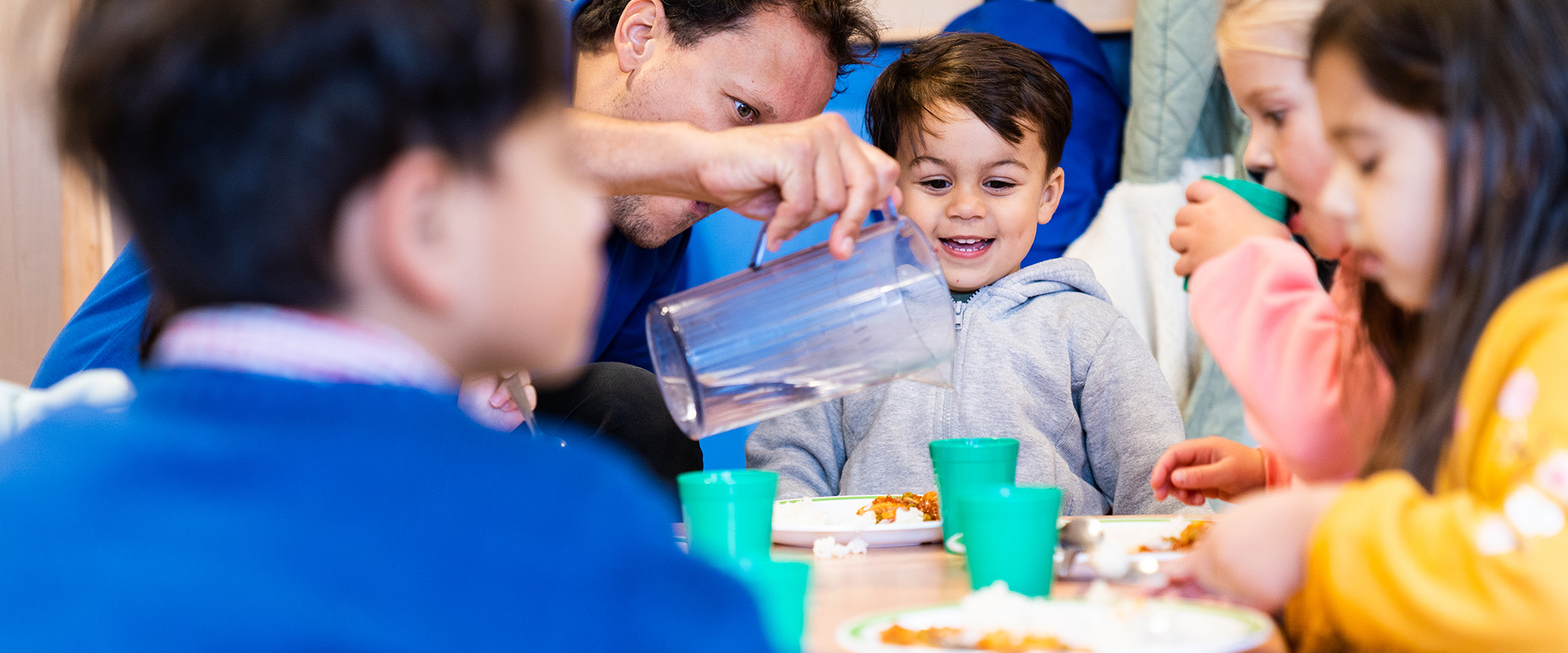From One Parent to Another: 8 Top Tips for Settling into Nursery

Meet Dina, mother to a 2-year-old boy and member of our fantastic Parent Panel*; a diverse community of Bright Horizons parents sharing their experiences of raising happy, thriving and confident children.
*Incentivised content
Settling into nursery life can be both exciting and nerve-wracking for new parents and their little ones. As a fellow parent, I can relate all too well. When my son started nursery, he clung to his muslin the entire time he was there! But the nursery staff were incredibly patient and reassuring, and it soon became evident that all we had to do was trust the process. Over time, he formed close bonds with his teachers and started building his first friendships, using his muslin less and less! It has been incredibly heartwarming to watch him grow in confidence and become not only settled in nursery, but excited about going every day!
Every child is unique and experiences the move to nursery school differently, but if you’re navigating this stage of parenthood and are looking for a little extra reassurance and support, here are my top tips to help ease the transition and make the journey a positive experience:
1. Utilise Bright Horizons Open Days and Settling-In Sessions
Help your little one become familiar with the nursery space. You can pop in for quick sessions to get them used to it, as well as attend other local baby/toddler groups to introduce your child to different environments and other toddlers. The more familiar and comfortable they become with these types of social settings, the better.
2. Get your little one involved in activity-based groups such as music sessions
These can help with learning new words, having fun, learning common rhymes, and counting numbers. Once again, this will positively contribute towards familiarity and their transition to nursery where similar activities take place.
3. Walk or drive to the nursery
This is a great way to get your child used to the route to nursery.
4. Talk about the nursery at home in a positive way
Mention playing with toys, making new friends, singing songs and dancing, as well as reading stories.
5. Saying goodbye in the morning
At first, this can be really difficult, and as your child grows older and moves rooms, they become more aware of the moment of separation. Try to keep your goodbyes upbeat and very short, and avoid dragging it out with long, dramatic hugs and kisses.
6. Comforter
If your child has comforter or something familiar to them, give it to their Bright Horizons Key Person. Let them know when they usually need it, e.g. for nap times. This will help them settle in as it mimics the comfort of home life and routine.
7. Get to know the team
The more you get to know the team in the nursery and build close relationships with them, (especially your child’s Key Person) the closer you can be to your child’s journey. Use these relationships to ask questions, receive regular feedback and updates and learn more about your child’s progress and routine. Remember, your nursery practitioners are passionate about what they do and love spending their days teaching and caring for your child – they want to be in a relationship and partnership with you!
8. Build relationships with other parents
Connect with the other nursery parents to share top tips, experiences, plan trips, playdates, and birthday parties, and of course, to lean on for support.
It’s important to remember that you’re not alone. Every parent, whether it’s their first child or their third, will have to move through this part of their child’s educational journey. It can also be helpful to remember that many others have already been through it and have successfully come out on the other side! Don’t hesitate to reach out to the other parents in your community and to lean on your nursery team for support.
To find out more about our wonderful Parent Panel, including Dina, visit our Parent Panel page!
…And, if you enjoyed this article, there’s more where it came from. Simply head to our Family Resource Zone for more blogs, booklists, recipes, play and learning at home activities and more.





